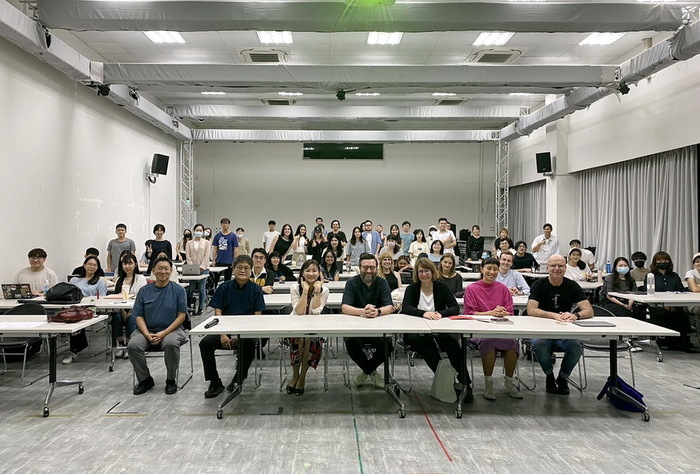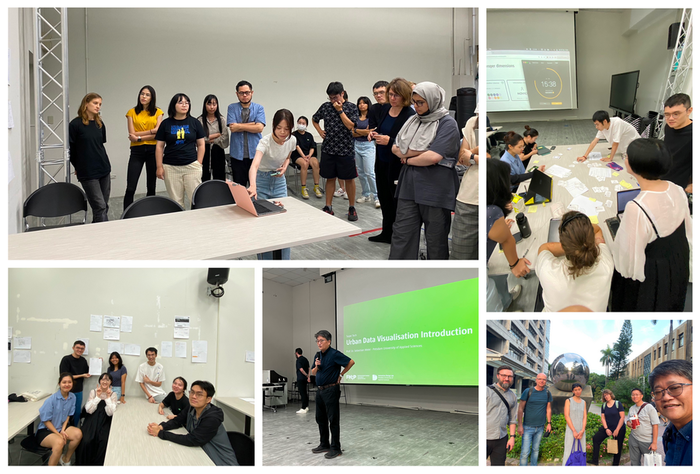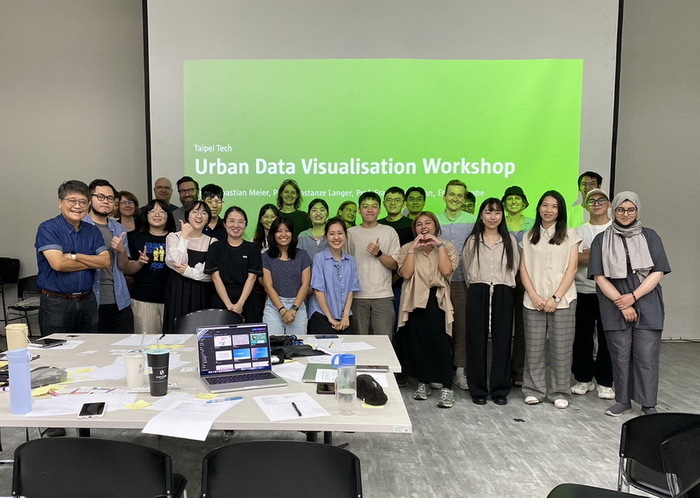Erasmus+ International Talent Mobility Program Activity



Erasmus+ International Talent Mobility Program Activity
NTUT Interaction Design Department Collaborates with University of Applied Sciences Potsdam, Germany on Urban Data Visualization Design Workshop
Following the successful Urban Data Visualization Workshop held in Germany from April 11th to 19th, funded by the Erasmus+ International Talent Mobility Program, Associate Professor Wang, Sheng-Ming, who has been a visiting scholar at the University of Applied Sciences Potsdam for six consecutive years, led Associate Professor Tai, Nan-Ching, and Assistant Professor Han, Ping-Hsuan, to conduct an eight-day workshop on Virtual Reality and Spatial Cognition, Architectural Sketching, and 360 Virtual Reality Storytelling. This collaboration received high praise.
From September 12th to 20th, Professor Constanze Langer, Vice President of the University of Applied Sciences Potsdam and Honorary Professor at NTUT's College of Design, visited NTUT. Along with Honorary Professor Frank Hiedmann, Professor Sebastian Meier, formerly associated with the Hamburg City Science Lab and Berlin Technology Foundation, and Ph.D. researcher Emilia Knabe, they met with Vice President Chong-guang Yang, Dean of the College of Design Ko-Chiu Wu, and Chair of the Interaction Design Department Hsiao-Yue Tsao. The purpose of the meeting was to discuss future international collaboration projects, student exchanges, and plans for dual-degree programs.
During September 15th to 16th, Professor Sebastian Meier and Ph.D. researcher Emilia Knabe, along with NTUT professors Wang, Sheng-Ming, and Tai, Nan-Ching, organized the Urban Data Visualization Design Workshop, using Taipei City's big data as a case study. The workshop attracted over 60 participants, including master's and doctoral students, international students, representatives from the Taiwan Design Research Institute, and professionals from various industries, who engaged in lectures and hands-on workshops.
Distinguishing itself from conventional data and programming-driven visualizations, this workshop focused on user interfaces and user experiences. The unique feature included the use of cards designed by Professor Sebastian Meier. Through group discussions, participants analyzed the assigned data and cases, positioning them based on various dimensions such as information complexity. They discussed the strengths and weaknesses of data presentation and then explored how to apply appropriate tools and interface designs to convey urban big data in different ways for various user groups.
The workshop began by selecting predefined themes and system interfaces using the designed cards. Participants discussed their strengths and weaknesses, selected entry points from the cards, and evaluated the degree to which the selected case charts met the relevant conditions. Participants then discussed the provided questions on the cards, reflecting on and reconstructing design proposals. The emphasis throughout the process was on interaction, discussion, exchange, and analysis among participants. The creative thinking and ideation phase allowed participants to propose how to change the original visualization solutions and interactive modes. Finally, public presentations were conducted, encouraging in-depth discussions with lecturers and other groups, enriching the content of design proposals.
Participants, including students and industry professionals, expressed that the workshop's content went beyond traditional thinking, interpreting and integrating complex data and information technology with simple cards to develop solutions for urban data visualization design. The workshop provided students with a cross-disciplinary mindset and operational mode. The engaging and fresh course content allowed local and international students from different backgrounds to brainstorm and engage in lively discussions. The multinational team of lecturers fostered high autonomy and responsibility among students, allowing them to freely apply creative thinking and problem-solving skills. The workshop also cultivated students' international perspectives and opportunities for future international talent mobility.

